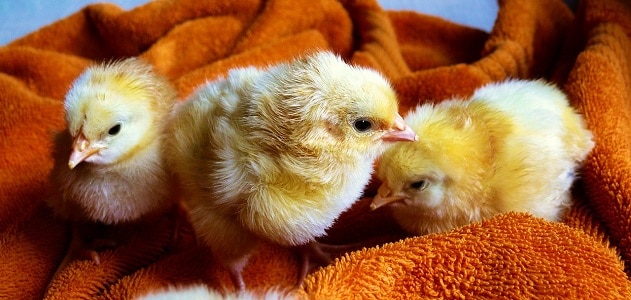The poultry business is getting more recognition these days and it is evident that many people are investing in it massively. It is either you raise poultry for eggs or for meat. This guide unravels the cost of rearing 100 Layers in Nigeria.
One of the most organized sectors in Nigeria is poultry. Poultry farming has increased drastically in recent years due to the high demand for chickens and egg consumption.
Both chicken and its egg are one of the most consumed products in Nigeria. This is simply because you will hardly come across a Nigerian who doesn’t like chicken meat or despises eating eggs made from chicken.
Additionally, no religion in Nigeria discriminates against the rearing of chickens as compared to other animals like pigs, goats and even cattle.
A recent statistical report revealed that the poultry sector has directly and indirectly employed about 1.5 million people. This makes it very interesting and hence we are going to explore the cost of laying 100 Layers in Nigeria.
It is important to understand that chickens are raised either as layers or broilers. Let’s quickly understand their differences
Difference Between Layers and Broilers
In poultry, broilers are reared to obtain meat whereas egg-laying poultry is called a layer. Broilers have a fast growth rate, therefore they need protein-rich food with sufficient fat. Layers need fewer proteins and fats in their food. Vitamin A and K are provided in larger quantities.
Again, the space required to raise broilers is larger than that of layers. Return on investment in broilers is faster while layers take a longer period.
In terms of demand, and marketing, layers are easily the most consumed alongside broiler chicken in Nigeria. The popularity transcends consumption and is best farmed for their egg production capacity. Layer chicken is economically viable because trillions of eggs are consumed in Nigeria daily. The demand for poultry eggs easily outways supply
Requirements For Rearing 100 Layers in Nigeria
A good layer chicken lays an average of 250 eggs a year. As a poultry business name, you must understand the requirements and strategies to run a successful poultry laying business that will provide a massive supply of eggs.
To understand the cost of rearing 100 layers in Nigeria, you need to consider the following requirements as you will be needing money for their availability.
1. Housing
Good housing is very essential for a poultry farmer. It is the first thing to set in place for starting a poultry business. The type of housing depends on the age of the bird.
A farmer can decide to start with day-old chicks and rear or purchase point of lay or old layers. Rearing day-old chicks is the most challenging route however the farmer is sure of the stock and outcome.
About to lay are best kept in battery cages while day old require housing, good ventilation, and heat units.
- Read Also: Start Snail Farming in Nigeria
Cost of Day-Old Chicks in Nigeria
Day-old layer chicks cost from ₦400 to ₦500
Let us estimate the cost with the lower cost of ₦400. Therefore cost of 100 layers of chicken at ₦400 equals ₦40,000.
The cost of 500 chicks at ₦400 is ₦200,000.
- 100 birds ₦40, 000
- 500 birds ₦225, 000
2. Feeding Equipment
After setting up your poultry farm, you want to ensure there is adequate feeding equipment for feeds and drinking water.
Feeding equipment should be regularly cleaned and vaccinated and all times
3. Vaccination and Drugs
You can ensure adequate vaccination and drugs are given to your chicks to keep them healthy always. Without adequate vaccination, chicks may suffer from all kinds of poultry diseases ranging from Coccidiosis, Avian Influenza, Fowl Pox, and Newcastle Disease resulting in death and a gross loss in production.
The price of medication depends on the type, quality of administration and number of birds. Types of poultry medication are Glucose, antibiotics, and vitamins. Others are Lasota, Vitality (Vitalyte)., Gomboro, Anticocci (Embazin Forte)., Anticocci (Embazin Forte), Tylodox extra, Fowl pox
4. Cost of Feeds
The amount of feed depends on the number of layer birds. Layer chickens only lay when they feed, a drop in feeding will adversely affect egg production. Although they don’t need as much feed as broilers they eat huge amounts. In fact, feeding, water and sanitation are the labour aspects of layer chicken production.
There are different types of chicken feed, layer mesh, grower mesh and starter mesh. Starter mesh is for day-old chicks, a grower for meat production (broilers), and layer mesh for egg production. The price is a bag of layer mesh is about ₦5,000
5. Business Registration
Consider your poultry rearing as a business. It is very important to register your brand with the Corporate Affairs Commission. It will help you in projecting and positioning your business for growth.
Lastly, having a certified business will attract investors to your brand, and this will lead you to more business offers too.
Practical Cost of Rearing 100 Layers in Nigeria
Let’s look at a total breakdown of expenditure needed to raise 100 layers of chicks in Nigeria
Analysis for 100 layers
Price of chick ₦400
100 x 400 =₦40,000
The pullet doesn’t eat like broiler so they require 1.5kg for 4 weeks
1.5kg x 100=150kg
Lets take a division 150kg/25kg= 6 bags
From 4 to 8 weeks the quicks will feed or consume around 1.5kg to 1.7kg
But let’s use 1.5kg also
1.5kg x 100 chicks =150kg /25kg=6 bags
Chick Mash
Total of chick mash requires = 6+6 bags=12 bags of chick mash
Each feed mash cost = ₦3,500
12 bags x 3500= ₦42,000
From 9 to 16 weeks
They require 4kg of feed, i.e 2kg per 4 weeks it is not certain but also depends on the breed and the temperature
4kg x 100 birds weeks = 400kg/25kg =16 bags
Grower Mash
A bag of growers is ₦3,000 depending on the company’s feed
16 x ₦3,000 = ₦48,000
At 16 weeks many people will start using layer mash but it is advisable to continue the grower feed till 20 weeks of age.
Between 16 to 20 weeks they will consume 2kg also =2 x 100= 200kg/25kg = 8 bags
8 bags ₦3,000= ₦24,000
Summary
Total bag between 9 to 20 weeks =24 bags of grower at ₦3,000 =₦72,000
Total cost so far
Chick= ₦40,000
Chick mash = ₦48,000
Chick Grower = ₦72,000
Total = ₦160,000
Vaccination
For the drugs, the standard calculation = ₦160,00 x 5/100 = ₦8,000
The price of medication is 2000 for each month, we analysed for medication is 4 months.
For vaccination, the standard price for each bird is ₦6 per week, (Gumboro and Lasota only) for 100= ₦600 per week. For four weeks=600 x 4= ₦2,400
Some necessary vaccination for layers
koromorov at 6 weeks=₦750 for 100 birds
Fowl pox at 8 weeks ₦700 per 100 doses.
Deworming at 10 weeks ₦450
Debeaking at 12 weeks ₦20 per bird= ₦2,000
Komorov at 16 weeks ₦750 per 100 dose
Total cost for vaccination = ₦7,050
Total cost so far = ₦160,000 = ₦2,400 +₦7,050 = ₦169,450
It is expected that in the 21st week, the chicks should start laying eggs
Will expect 70 percent of the birds to be laying.
That is about 70 eggs per day
We have 70 egg /30 = 2.10 creates ( A create of egg in Nigeria now (May 2022 is ₦1,900) = ₦3,990 in a day
Feeding per day of layers
100 layers require 12.5kg of feed per day.
Note 25kg of layer =₦3,500 while half will be 1,750 per day
Profit per day will be =₦1,785 – ₦1575=₦210
In a month will have ₦210 x 30 = ₦6,300 per month
For A year of 12 months, the production usually rises and falls. Let’s forfeit a month to Maintain the production standard
₦6,300 x 12 = ₦75,600
Let say we have 5% mortality and we have 95 birds on the ground.
95 x 1200 =234,000 for spent layers.
The total profit = ₦234,000 – ₦140,090 = ₦93,910
This analysis makes not achieved if BIOSECURITY measures are not strictly followed.
Note: for every 6 weeks you do Lasota, which prevents Newcastle, and serve as an egg booster.
Medication should also be given at this age. E., Vitamins, antisocial, and antibiotics should be done at 6 weeks interval
- Read Also: How to Start Pet Business
Egg Booster For Layers in Nigeria
When chickens are not well fed, egg production will decrease. This is mostly caused by a lack of drinking water and low feed intake levels. Chickens tend to eat less when the feed is not tasty or when they are stressed due to environmental factors, especially when it gets too hot.
As a result of this, many egg-producing companies platonize egg boosters a lot to increase the yield of eggs in their poultry farms.
Atlas Egg Boost is formulated to support the optimum level of bird health while boosting the nutritional quality of eggs with an enhanced amount of required nutrients. It is important for use in chickens to meet the birds’ vitamin requirements. Indicated for increasing egg production in pullets and layers under stress.
Read Also:
Cost of Feeding 500 Catfish in Nigeria
High-Income Businesses that Pay Daily
Conclusively, the monthly cost of rearing 100 layers in Nigeria can not be the same for every farmer due to so many factors involved.
So the best cost estimate for your layers should be based on your analysis over time and on the number of layers you are rearing.

Legacy Benjamin is a serial SEO content writer with a half-decade of experience in the field of blogging. He is also a skilled business consultant, providing valuable insights to companies and individuals seeking growth and success. His expertise lies in crafting compelling and engaging content that captivates audiences and drives business results. For business deals, contact him

